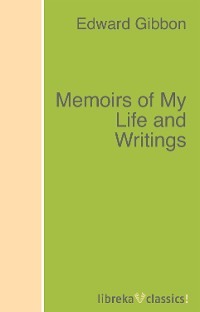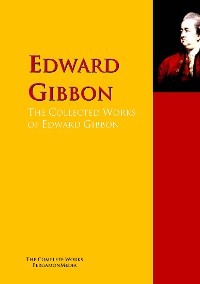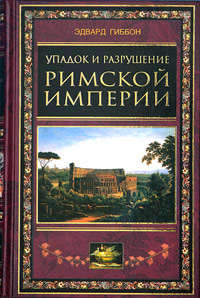 полная версия
полная версияPrivate Letters of Edward Gibbon (1753-1794) Volume 1 (of 2)
62.
To his Father
Pall Mall, March the 22nd, 1769.Dear Sir,
It is impossible for me to express how much your last letter surprized and grieved me; as well from the particular contents of it, as from the general strain of resentment & dis-satisfaction which runs thro' the whole. To be accused of neglect, of indifference, of unjust insinuations are reproaches, which I can only bear because I am conscious of not having deserved them. I wish to look forwards, & if at any time I look back, it is only where such a retrospect, however unpleasant, becomes necessary.
Our Deed of Trust has ever been considered by us all as the Great Basis of our future conduct, & Mr. Porten, by our mutual consent. We were to empower them to sell the Hampshire and Bucks Estates, & to reconvey to us the Remainder (after payment of Debts, &c.) on certain conditions, which have been more than once explained. Such was the clear sense of this Deed, which I thought had been long since understood by us all. Indeed to put that sense into a Legal form was not in our power. Southouse is doing that, and it was thought as necessary as it is usual, that the Attorney's work should be revised by a Lawyer of some note, Mr. Pechell, a Master in Chancery and particular friend of Mr. Porten. To these four persons only, the two Trustees, one Attorney and one Council, has the affair been exposed.
HIS FATHER'S SCHEME IMPRACTICABLE.
With regard to my possessing the Buckinghamshire Estate in fee, irrevocably charged with your annuity and Mrs. G.'s jointure; it was what, after the maturest consideration & the most disinterested advice, I cannot depart from. Should I ever be idiot enough to sell it whilst so heavily burdened, no such act could in the least affect your settled annuity or Mrs. G.'s jointure. I am however willing to give you my word of honor, that I will never sell or mortgage any part of it during your life; and that I will immediately make a Will, by which (supposing I should die without children before you) I leave the Estate to you in fee simple. If any legal restraints can be devised, (other than such as make me for ever a meer life Tenant) I will consent to them with pleasure: I will do more, I will try to discover them.
So far, Dear Sir, from neglecting our immediate occasion for money, the Trustees are impowered to borrow whatever sums may be wanted before the Estates can be disposed of. But I must add that till the Deed is executed nothing can be done, and that you are therefore the Cause of the Delays with which you reproach us. I am the more sensible of a speedy dispatch as the Chancery affair cannot be put off much longer.
I am, Dear Sir,Most truly yours,E. Gibbon.63.
To his Father
London, March the 31st, 1769.Dear Sir,
According to your request I communicated your last proposals to our common friends. I must acknowledge that we all discovered many strong and almost insuperable difficulties in it; many of which related even to your own comfort and happiness, which will ever be a very principal consideration. But I shall not at present trouble you with our objections; as we should not have time to execute this new scheme, however eligible it might be; at present every thing is nearly finished. The Hampshire Deed is almost engrossed, the B[uckinghamshire] is now before Council, and I can venture to assure you that in the course of next week, I shall be able to write in order to fix the positive day for your's and Mrs. G.'s coming up. Should we now adopt your Proposal, every thing must begin again de novo, and several weeks would elapse before we should be reinstated in our present situation.
With regard to your last questions, I can now positively say that neither household furniture nor stock are comprized in the Deed, tho' we expect and depend on your word of honor, that the latter, and such of the former as is not wanted, will be faithfully applied by yourself to the same common purposes.
I believe I mentioned some time ago, that the particulars of Debts will not be described in the Deed of Trust, but in a private Schedule referred to therein. You will be so good, Dear Sir, as to prepare and bring the materials of it with you. The List you gave me at Beriton must already have suffered some alterations, both as Debtor and Creditor. Besides Clarke's Debt is as yet unknown. – Indeed it will be necessary that previous to your coming up, you should send the Deeds of Copyhold (if any) and College Holding which we have not at present. We should likewise be glad to hear your sentiments still further with regard to Putney. The practice of Advertising is universal, and it is in vain to think of secrecy.
I am, Dear Sir,Most truly your's & Mrs. G.'s,E. G.64.
To his Father
April 13th, 1769.Dear Sir,
Mr. Southouse whom I saw yesterday tells me, that I may desire the favor of your company, with Mrs. G.'s, next Thursday evening. He thinks that Friday and Saturday mornings will suffice for our immediate business. As to the place, I should be glad to know whether you choose my lodgings or wish me to look out for any other place. – Should any thing (which I do not foresee) happen to defer your coming up, I shall take care to give you timely intelligence. – It is very difficult to say any thing positive as to money till we have finished writings, &c. However as to the C. affair, Mr. Scott will answer for it.
Mrs. G. distresses me every way. – I am truly concerned that it should be necessary for her to come up, at a time when I can easily conceive the state of her mind & spirits; but I am still more embarassed from her generous obstinacy. The sum of her Jointure is left in blank. Should she still object to the encrease of her Jointure, I must leave it as an engagement not of law, but of honor, of gratitude and of inclination.
You may depend on another letter by Sunday, till when
I am, Dear Sir,Yours most truly,E. G.65.
To his Father
April 18th, 1769.Dear Sir,
I waited till to-night before I took Lodgings, as I was not sure of your intentions. To-morrow morning I shall look out for one. I apprehend Suffolk Street or that neighbourhood will be at once private and convenient. – You will of course come in by Hyde Park Corner, and my servant shall attend at my lodgings at Mr. Taylor's, Grocer's, opposite to the Duke of Cumberland's, Pall Mall, to conduct you to your lodgings, where I shall immediately attend you. I should think that you had better not arrive till towards five o'clock, when Sir R. will be gone to dinner.
I am, Dear Sir,Most truly yours,E. G.66.
To his Stepmother
Thursday night, Cocoa Tree.Dear Madam,
HIS FATHER'S FAILING EYESIGHT.
I was a good deal alarmed with your letter of yesterday, and as much pleased with that of to-day, which dispelled my uneasiness: before you receive this I flatter myself that my father will be quite recovered. I have seen Wentzel,[123] who very obligingly took my guinea to tell me that he could tell me nothing about my father's case without seeing him. On that head he was very cool and very fair; a decay of the optic nerve, he said, was sometimes tho' seldom to be removed; as to the opinions of our surgeons he treated them with infinite contempt.
I am glad that our Meeting was attended, that things may end with a good grace. Sir Simeon has been so dangerously ill with the gout, that I have not yet settled my resignation. Henry will attend next Tuesday.
I am, Dear Madam,Most truly yours,E. G.67.
To his Father
London, June the 1st, 1769.Dear Sir,
I am sorry that I cannot give you more pleasing accounts of our progress in the Putney affairs, but we find people very cool, and tho' many applications are made, yet nobody as yet has spoke seriously and to the point. We attribute this general slowness in a great measure to the vague description of an Estate seven miles from London, &c., and heartily wish you would allow us to particularize place, name, &c. Boissier has been over to S.'s at Wimbleton. It plainly appears that he wishes to buy, but to buy cheap, and that, notwithstanding his polite professions, he will do all in his power to keep off all other purchasers. Considering all these rubs, we could very much wish that you would set about giving us the particulars of the Hampshire Estates, that the summer may not steal away upon us, without any things being done.
I am much concerned to hear from Mrs. Gibbon that your Operation has not produced any good effects, tho' we could hardly expect any alteration in so short a time. As soon as we see a little more clearly into what can or cannot be done as to Putney, I propose coming down, as I wish to see you and Mrs. Gibbon, and I am sure London has now no charms for me.
I am, Dear Sir,Most truly yours,E. G.We wish to know upon what terms your Putney Tenants who have no leases (Bateman, I think, & Stewart) hold their land and what they pay.
P.S. – If you think I can be of more service at Beriton than in London, I will attend you as soon as our Militia meeting is over, for till then I think I cannot decently be in Hampshire.
68.
To his Stepmother
London, June 22nd, 1769.Dear Madam,
Before I received your last letter I was displeased with myself for having been so long silent, and yet I should have been still more displeased if I had wrote, as I could say nothing that was agreable, nothing but what must lower my father's spirits as they every day do mine. Tho' we have had many enquiries about Putney, yet nothing like an offer has presented itself. We must therefore think of Beriton, and tho' I do not wish to complain, I must say that we are all surprized at my father's seeming indifference on that occasion. We feel for the situation both of his eyes & his spirits, but still we are surprized. – Things indeed draw so near a crisis that some resolution must be taken. Mr. Scott & Mr. Porten propose entering upon it next Week, and think my presence necessary. As soon as something is settled you may depend either on seeing me at Beriton, or at least on hearing every particular which can interest the common cause.
I am, Dear Madam,Most truly yours & my father's,E. G.69.
To his Father
Pall Mall, August the 17th, 1769.Dear Sir,
We have agreed with Mr. Wood for the £8500, the rents and profits till Michaelmas excepted. The writings are sent to his Lawyer's to-day, and as there is no difficulty in the title, we may look upon the affair as concluded. Our friends were clearly of opinion that the measure is prudent, and, every thing considered, I could not avoid being of the same opinion. But I shall say the less on that head as they propose writing themselves very soon. They wish me to remain here till Wood's Lawyer has signified his approbation. I hope to be with you Sunday, as I find myself in a far greater solitude in Town than at Beriton.
I am, Dear Sir,Most truly yours,E. G.70.
To J. B. Holroyd, Esq
Beriton, October 16th, 1769.*My dear Hussar,
SHEFFIELD PLACE BOUGHT BY MR. HOLROYD.
I received your agreeable Missive about two days ago; and am glad to find that, after all your Errors, you are at last a settled man.[124] I do most sincerely regret that it is not in my power to obey your immediate summons. Some very particular business will not at present permit me to be long absent from Beriton. The same business will carry me to town, about the 6th of next Month, for some days. On my return, I do really hope and intend to storm your Castle before Christmas, as I presume you will hardly remove sooner. I should be glad to meet Cambridge;[125] but the plain dish of friendship will satisfy me, without the seasoning of Attic Wit. Do you know any thing of Guise? Have you no inclination to look at the Russians?[126] We have a bed at your Service. Vale.
Present my sincere Respects to those who are dear to you; Believe me, they are so to me.
Do I direct right to East Grinstead?*
71.
To J. B. Holroyd, Esq
Boodle's, Ten o'Clock, Thursday Evening.[Dec. 1769.]*Dear Holroyd,
LETTERS OF JUNIUS
My schemes with regard to you have been entirely disapointed. The business that called me to town was not ready before the 20th of last month, and the same business has kept me here till now. I have, however, a very strong inclination to eat a Christmas Mince-pye with you; and let me tell you that inclination is no small Compliment. What are the trees and waters of Sheffield-place compared with the comfortable smoke, lazy dinners, and inflammatory Junius's, which we can every day enjoy in town? You have seen the last Junius?[127] He calls on the distant Legions to march to the Capital, and free us from the tyranny of the Prætorian Guards: I cannot answer for the ghost of the 'Hic & ubiques,' but the Hampshire Militia are determined to keep the peace for fear of a broken head.* – After all, do I mean to make a visit next week? Upon my soul I cannot tell. I tell every body that I shall. I know that I cannot pass the week with any man in the world, with whom the pleasure of seeing each other, will be more sincere or more reciprocal. Yet between you and [me] I do not believe that I shall be able to get out of this town before you come into it. At all events I look forwards with Great impatience to Bruton Street and the Romans.
Believe me,Most truly yours,E. Gibbon.72.
To J. B. Holroyd, Esq
Pall-Mall, December 25th, 1769.Dear Holroyd,
Some Dæmon, the enemy of friendship, seems to have determined that We shall not meet at Sheffield-place. I was fully resolved to make amends for my lazy scruples, and to dine with you to-morrow; when I received a letter this day from my father, which irresistibly draws me to Beriton for about ten days. The above-mentioned Dæmon, though he may defer my projects, shall not however disapoint them. Since you intend to pass the winter in retirement, it will be a far greater compliment to quit active, gay, political London, than the drowsy desert London of the holydays. But I retract. What is both pleasing & sincere, is above that prostituted word compliment. Believe me, most sincerely yours.
A propos, I forgot the compliments of the season, &c. &c.
73.
To his Stepmother
Dear Madam,
I only write two lines to tell you that Mrs. Elliot designs a visit to Beriton in her way to Cornwall. Perhaps she will be with you Tuesday, but I think Wednesday at farthest, and from my having really forgot it last night's post, my letter may perhaps be of no use. I am just come from an Excursion out of town with them. We are grown wonderfully intimate.
I am, Dear Madam,Most truly yours,E. G.There can be no difficulty in using the Chaise; as you must have paid the year beforehand.
74.
To his Stepmother
Pall Mall, three o'clock.Dear Madam,
I got to Godalming at half past nine, to Epsom (Lockwood was in town) at twelve and over Westminster Bridge at two, pretty good travelling! I am perfectly well, very hungry and
Ever yours,E. G.75.
To his Stepmother
Pall Mall, Saturday night.Dear Madam,
A COUNTRY NEIGHBOUR IN LONDON.
The little Curate gave me the other day the pleasure of hearing you were perfectly well, I send two lines to return the same assurances with regard to myself. The Levite is now at Chatham, but will have his ears regaled next week, after Clarke and myself are returned from Holroyd's, whither we intend to run down to-morrow. In the midst of our amusements I shall consult the Oracle. – D'Eyverdun is not come back, nor has he replied a syllable to six letters of mine and Sir R.'s.[128] Lord Chesterfield, tired with waiting and fruitless enquiries, has sent his heir abroad under another Governor. I pity our friend, but fear he will not be able to justify himself either to his friends or to his own judgment. Jolliffe[129] has bought an excellent house in Little Argyle Street, very cheap. I had the honour of seeing in it Madame la Mére; vastly like one of the elderly ladies in Mackbeth. She was wonderfully gracious to me.
Adieu, Dear Madam,E. G.76.
To his Stepmother
Pall Mall, Thursday evening.Dear Madam,
I wrote last night with twenty people round me, and reperusing your letter this morning, I found I had only forgot to answer the most material part of it; the pews. The thing itself is utterly indifferent to me, but as Sir Hugh has the Manor, I think the compliment is properly due to him, and I will write to him for that purpose to-morrow.
I am, Dear Madam,Most truly yours,E. G.77.
To his Stepmother
Pall Mall, February 17th, 1770.Dear Madam,
Laziness and procrastination are poor excuses for silence; yet such as they are I am too often forced to employ them. However at this time, I was partly satisfied by the frequent [accounts] I received from Beriton both by Pitman's journey & the channel of Mr. Porten; and I might perhaps have remained still longer in my Lethargy, had I not been rouzed by the unaccountable fate which your last letter has met with. Thro' some strange jumble between Mr. Porten's servant, the maid & Luke, it has dropt somewhere by the way. This upon my honor is the exact truth; so that if there was any thing in it which requires a particular answer I must intreat you to repeat it.
Baron Wentzel is at last arrived, but says himself that he is at present overwhelmed with business. I submit it to my father and yourself, whether it may not be better to wait till he shall be somewhat more at leisure.
This great public scene is still as noisy & as nonsensical as ever. Particulars would be endless, & indeed the papers are now so daring that they almost forestall any private intelligence. Conjectures I leave to men more idle or more busy than myself. However the general opinion is that the next fortnight must decide the fate of the ministry.[130] If Lord North (whose spirit & abilities are certainly great) holds out till then, the minority will probably divide, desert, & run away.
A more agreable piece of private news relate to our old arrears, which we are in a fair way of recovering as the North already have. Abbot is in town and we are pushing the affair. This will amount to about £100 for myself, & near double for my father, and with this I close my Militia service. I have already conversed with Sir Simeon & propose resigning in a few days. However I will come to the meetings, if I am absolutely necessary, & should be glad to know the days.
I am, Dear Madam,Your's & my father's,E. G.78.
To his Stepmother
Pall Mall, March the 20th, 1770.Two o'clock in the afternoon.Dear Madam,
BUCKFORD'S REMONSTRANCE.
You and my father know already that I have not obeyed your summons, but you do not know that it was impossible for me to obey it. Your letter was received at the Cocoa-tree yesterday afternoon, but was not sent to my lodgings till after I was gone out to dinner. I dined, went down to the House of Commons, staid out a very long debate, & was not in bed till four o'clock this morning. When I got up about twelve, I perceived your letter; but it was then much too late, since had I set out immediately I could not have reached Petersfield before ten o'clock at night. If this accident has prevented any meeting, I am really sorry for it, & will readily come any other day that it can be adjourned to. But I still flatter myself that my father found himself better than he expected.
The debate I mentioned was upon the Remonstrance:[131] it was carried, 284 against 127, that questioning the legal existence of Parliament is highly unwarrantable, tending to sedition and an abuse of the right of petitioning. To-day they go upon a most loyal address of lives & fortunes, after which a severe censure of the Mayor & Sherifs is expected; but as the nature of that Censure has not transpired, so the consequences of it cannot be foreseen.
I am, Dear Madam,Most truly yours,E. Gibbon.79.
To his Stepmother
Pall Mall, April 19th, 1770.A good voyage to the Nabob.Dear Madam,
Pitman was a monkey to alarm you about me. I was indeed troubled last week with something not unlike my old complaint, a difficulty of breathing and a soreness upon the breast and stomach. As it was attended with a good deal of pain and feaverish heat, I sent for Dr. Turton, a young but very sensible Physician, (Mr. Eliott employs him likewise) & who I believe has every requisite except those of gravity & a tye-Wig. He set me up very soon, but I have since had a return, & upon the whole he thinks it is growing into something of an intermittent feaver: if that should prove to be the case, he intends throwing in the bark: In the mean time I live low & keep a good deal at home. I hope my father's complaints will be of no more consequence than mine.
Believe me, Dear Madam,Most truly yours,E. G.80.
To his Stepmother
Pall Mall, June the 26th.Dear Madam,
Your Wastecoat is most universally admired, and I shall be much obliged to you for another exactly the same. I hope to pay my respects to Mr. and Mrs. Gould (to whom I beg my compliments) some time next week, but cannot yet fix the day. In the meantime I am in wonderfull haste, just going to Vauxhall.[132]
Dear Madam,Ever Yours,E. G.81.
To James Scott, Esq
Beriton, July the 3rd, 1770.Dear Sir,
HIS FATHER'S ILLNESS.
We are very happy to find by your last letter, that your health and spirits are in so very good a state. I sincerely wish, that it were in my power to return you as favourable an account of my poor father, but indeed I apprehend him to be in a very bad way. Within these ten days or fortnight he has been much worse than before. Dr. Cuthbert was sent for last night from Portsmouth and has just left us. He is convinced that my father's disorder must end in a dropsy, and fears that his liver is affected. He neither eats nor sleeps, and is indeed very ill. You may judge that Mrs. Gibbon & myself are very far from being easy or happy.
Such an account, Dear Sir, promises you but little amusement at Beriton, yet it is in such times that the company of a real friend is the most acceptable. Yours would be most truly so to us all, and particularly to myself. There are other subjects, which it is as cruel to press, as inconvenient to neglect. I can hardly venture to say that your presence would produce any effect, but I am too well assured, that without your presence nothing can be done.
I am, Dear Sir,Most truly yours,E. G.82.
To J. B. Holroyd, Esq
Beriton, August the 9th, 1770.Dear Holroyd,
I am much obliged to you for persisting to court a friend who has the appearance of neglecting you. But when you are told the reason of it, you will rather pity than blame me. It is my poor father's illness that confines me here, and cannot permit me to stir till the affair is decided: a confirmed Dropsy and Asthma which have either produced or been caused by a general decay of the constitution allows us no hope of his recovery.
You may easily suppose that I am in a very improper frame of mind for the easy flow of a familiar epistle. I shall therefore only speak to business. The men I spoke of are the two Smiths, the father who lives at Havant, and the son who lives at Wickham in this county. Both, especially the son, are famous for surveying and valuing Timber (the surveying land is a separate branch, and quite out of their way). My father has always had reason to be satisfied with their skill and honesty. Their price for surveying is a guinea a day, or so much in the pound (I don't know exactly what) if they sell the timber. I will make any further enquiries you desire, and in the meantime, wish you would sometimes raise my spirits by a friendly salutation.
I am, Dear H.,Most truly yours,E. G.








